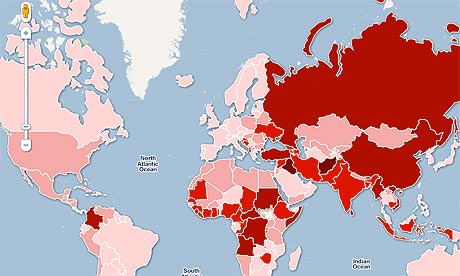
Refugee statistics from the UNHCR
Today, June 20, 2011, is World Refugee Day. To honor this, the United Nations Refugee Agency released a report, UNHCR Global Trends 2010: 60 Years and Still Counting. According to the report, there are no 43.7million refugees and internally displaced persons. That’s the highest number in 15 years. 27.5 million people are internally displaced persons, the highest number in a decade. Globally, fewer than 200,000 refugees voluntarily returned home, the lowest number in twenty years.
Children make up more than 50% of the global displaced population. 55% of stateless people are children. 55% of returnees are children. 48% of Internally Displaced Persons are children. 44% of refugees are children. 31% of asylum seekers are children. 55% of “others of concern” are children. If children are the future, what is the present?
Women and girls? “Women and girls represented, on average, 49 per cent of persons of concern to UNHCR. They constituted 47 per cent of refugees, and half of all IDPs and returnees (former refugees).”
On July 28, 1951, the United Nations adopted the United Nations Convention Relating to the Status of Refugees. In 2000, the United Nations adopted June 20 as World Refugee Day. It chose that day so as to coincide with Africa Refugee Day, June 20. Starting in 2001, June 20 has been `celebrated’ as World Refugee Day.
From 2001 to 2011, ten years is too many. From 1951 to 2011, sixty years is too many too many. Last week, in a nationally broadcast public forum, Dan Pfeiffer, White House Director of Communications, was asked, directly and repeatedly, “Is there a war on women?” He equivocated and obfuscated and generally avoided the question. The question can’t be avoided. Is there a war on women? Yes, there is a war on women. Part of that war is the production of huge populations of refugee and internally displaced women and girls. Stakeholders must be called to account. When asked the question, answer directly. Yes, there is a war on women. Yes, sixty years is too many too many. But hey … who’s counting?
(Photo Credit: The Guardian)